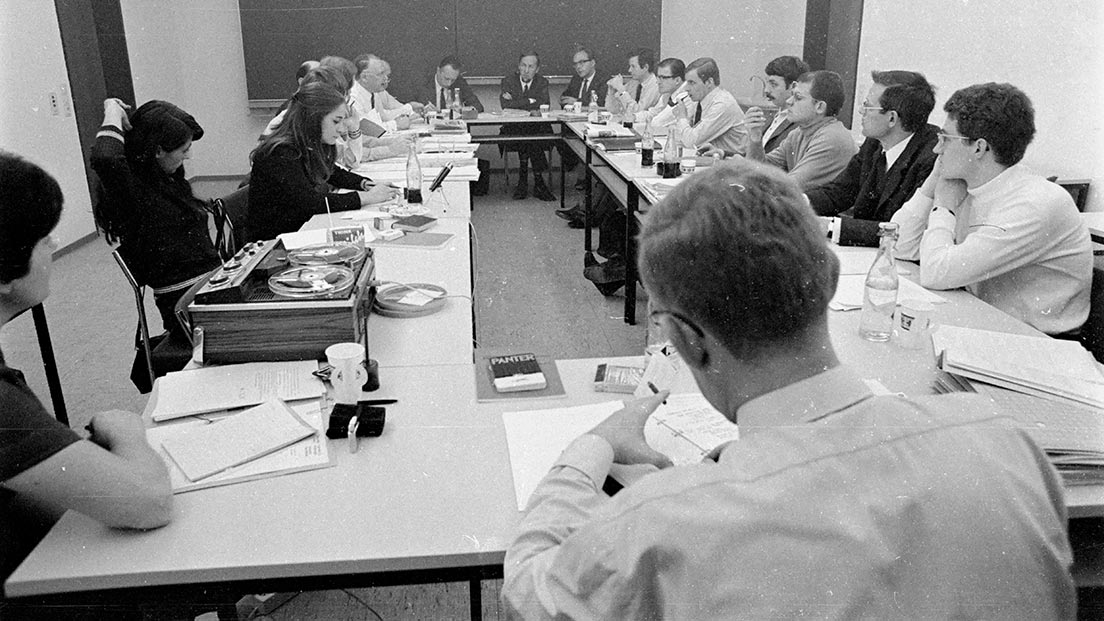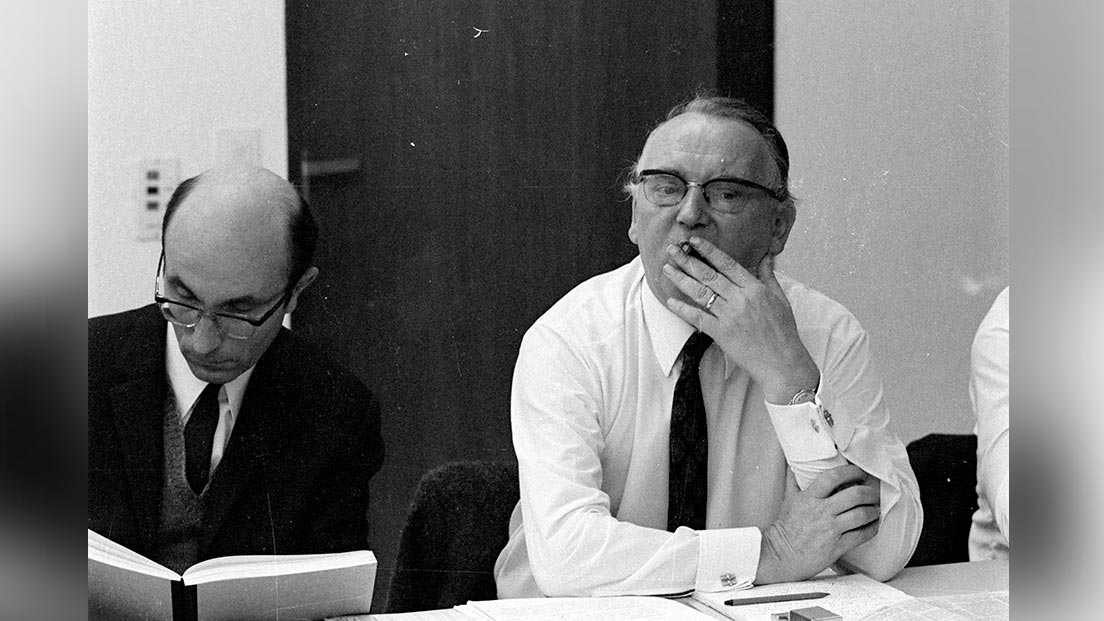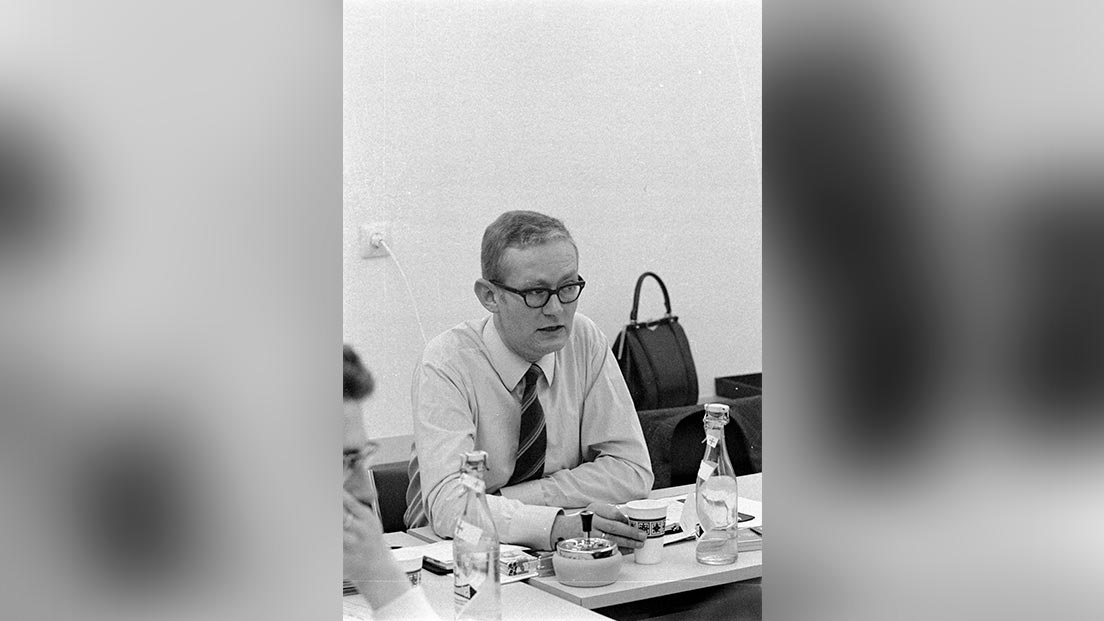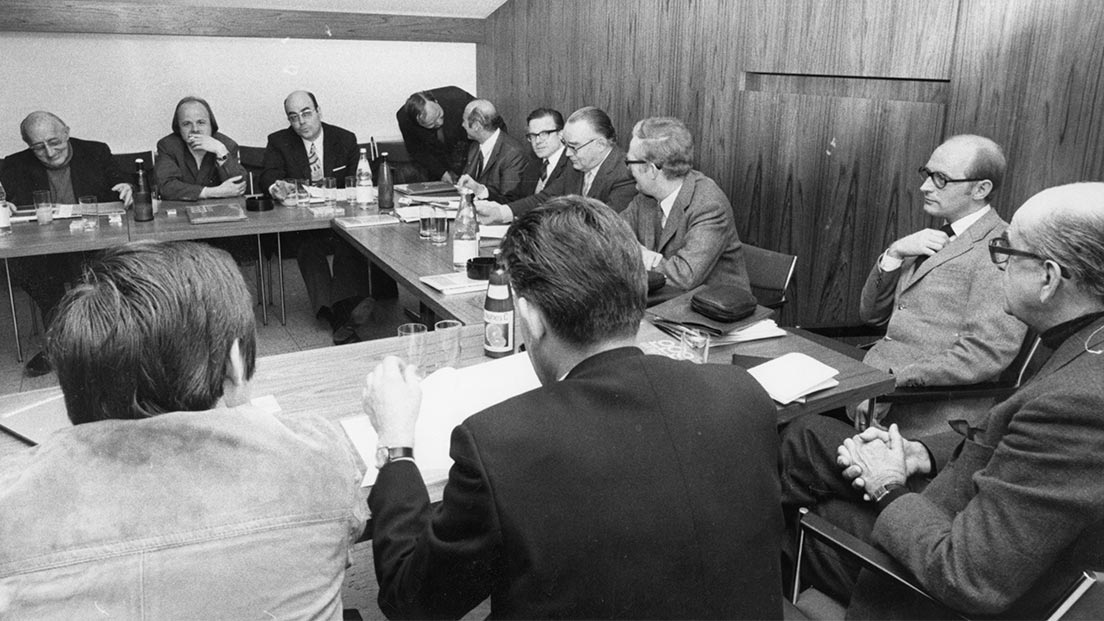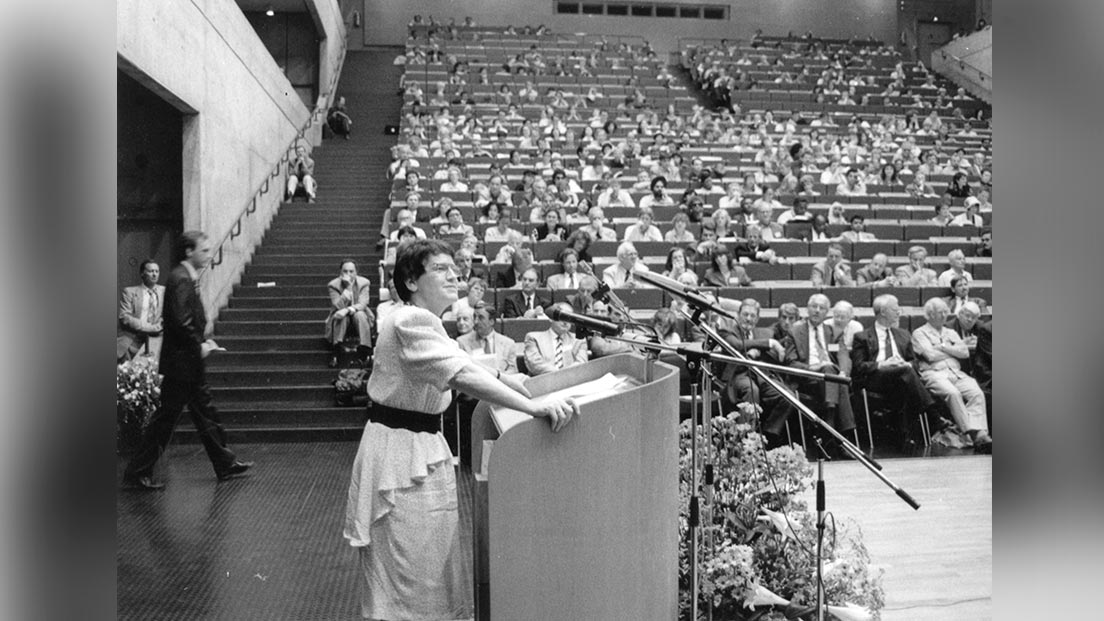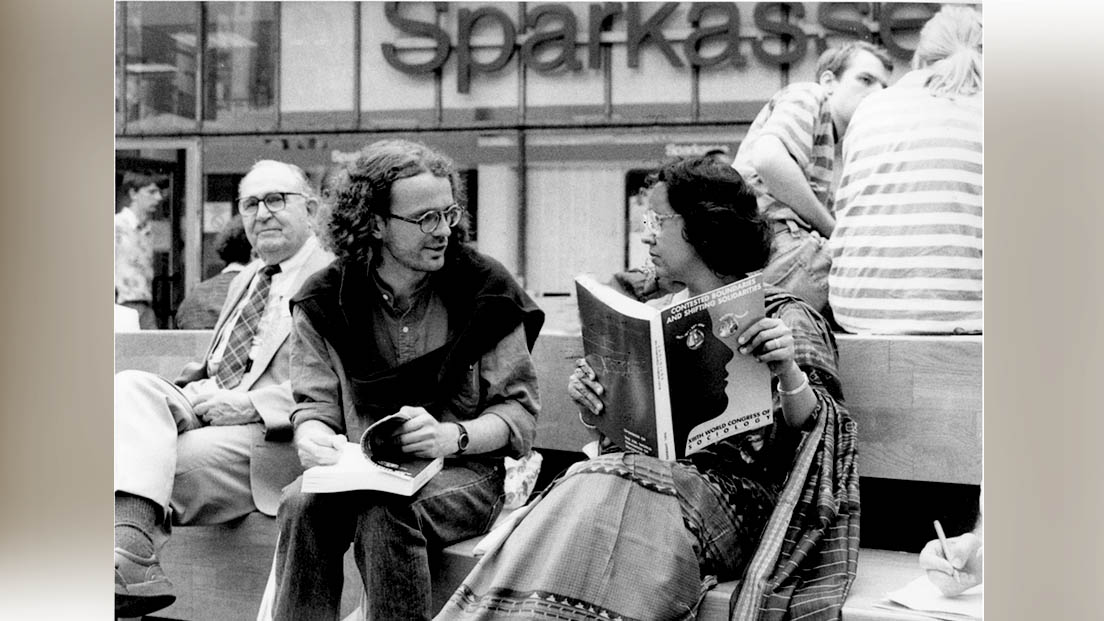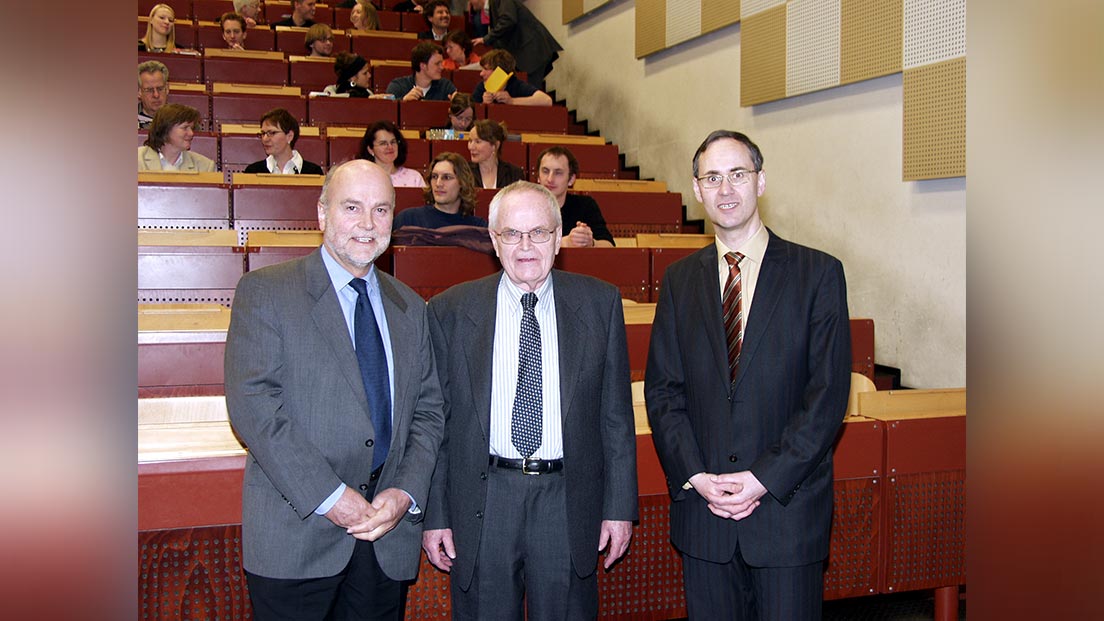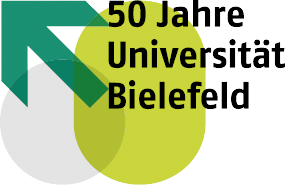–
Source: WDR (Universitätsarchiv Bielefeld, FS 31)
The faculty represented a breakthrough for sociology in Germany. In Bielefeld, the foundation of the faculty offered the opportunity to reorganise the way sociology was taught and researched without being hampered by earlier developments in university and faculty history. Even before the faculty was established, there were disputes about the take-over of the Sozialforschungstelle Dortmund (Dortmund Social Research Centre) and its library as well as the new concept of a more job-related teaching programme in sociology. The battle for a “vocational diploma course”, the concept of “active professionalisation” and the examination regulations dominated the first years of the Faculty. In addition, the definition of research foci (among others sociology of law, political sociology, mathematics of the social sciences, Latin American studies or science studies) needed to be agreed upon. Against the background of the student movement, there were also internal disputes, which corresponded to the classic dichotomy of “right-left” political allegiances which were particularly apparent when appointments to professorial positions were made.
Famous scientists of sociology in Bielefeld
Nevertheless, the possibilities for structural scope in founding the new faculty exerted a great fascination: The Faculty, and the ZiF, were key in attracting the sociologist Norbert Elias, who fled to Great Britain in 1933, to work in Bielefeld from 1978 to 1984. The 18th German Sociologists’ Conference took place in Bielefeld in 1976, as did the XIII World Congress for Sociology in 1994.
Many scientists enjoyed the academic freedom that the new Faculty provided, including the renowned sociologist Niklas Luhmann who developed his systems theory here. His work would, in turn, go on to shape the image of the Faculty of Sociology to a considerable degree. In addition, the Faculty established an internal structure of working and research areas that facilitated the study of contemporary societal transformations such as the sociology of the media or of gender relations.
Today the faculty combines a number of subjects under its roof. In addition to general sociology and several specialist sociologies, political science and social anthropology as well as social science (as an interdisciplinary combination of sociology, political science and economics) are represented in teaching and research at the Faculty of Sociology.

